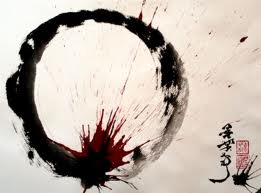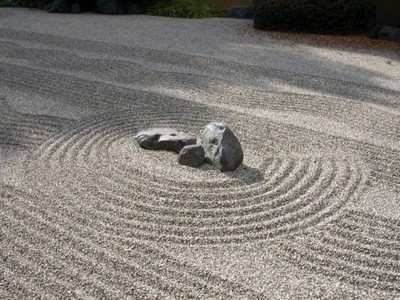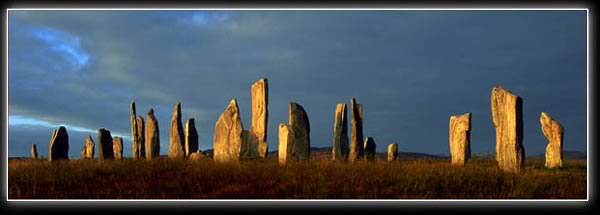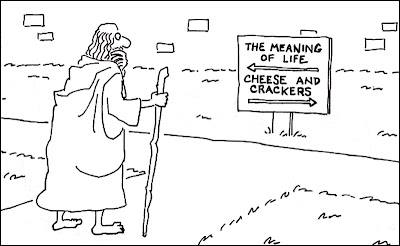
Attend the TAT Foundation's April Retreat!
February 2014
This Month's Contents: Meditation by Tess Hughes | In Silence by Thomas Merton | Video: Louis C.K. Hates Cell Phones | Answers by Howdie Mickoski | What Do You Want? by Jan Frazier | Right Where It Belongs by Nine Inch Nails | Quotes | Humor | Reader Commentary |
Editor's Note
by Heather Saunders

That longing in the chest....I've been told to stay in touch with that feeling, that it will take me home. What is that longing in the chest? What evokes that feeling in you? A song? A poem? A photo? Next month's Forum will be devoted to your responses to this question....what evokes the feeling of longing in you? Send in your replies by hitting Contact at the top of the TAT Forum.
Meditation
by Tess Hughes
The word "meditation" is an umbrella word that covers a variety of activities, much as the word "thinking" or "music" does.
Osho developed maybe one hundred methods of meditation. Every religion has developed some method of meditation, often with precise physical postures and specific time periods and exact instructions for mental activity and so on.
Meditation is often presented as a recipe for enlightenment or spiritual growth without explanation of how or why this works.
The thing is to distinguish the method from the goal in meditation, the practice from the meditative state of mind. Why are you meditating? What is it intended to achieve for you? How does this work?
Taking on a meditation practice is useful for developing discipline and commitment on your spiritual path. You may already be a disciplined person or already know you are committed so in this case meditation is not necessary to develop those qualities.  These two qualities are often lacking in beginners and it is necessary to establish some practice as a basis for spiritual movement within one.
These two qualities are often lacking in beginners and it is necessary to establish some practice as a basis for spiritual movement within one.
Other than this, meditation is used for either of two purposes, relaxation or insight.
The reason "relaxation" meditations are useful is because most people who become interested in spiritual development are prompted by a desire to reduce stress or unhappiness in their lives. In modern times stress, anxiety, fear, worry, depression etc. are part and parcel of everyday life.
The mind is constantly racing and thought streams are pouring out incessantly. We live very busy lives.
The purpose of relaxation type meditation is to slow down this flow of thoughts and consequent emotions. It is not about stopping thoughts but about getting the flow of thoughts to a more manageable pace.
When I first learned a meditation method, I was a young mother with two small children and a full-time teaching job. I learned Transcendental Meditation, a mantra based practice which interrupts the normal thought flow.
From the first time it had a deep effect on me. The instruction was to do it twice per day, twenty minutes morning and evening. My life was so busy and stressful at the time that even twenty minutes spent alone saying the mantra had a profound effect. The problem was that I could not find twenty minutes in my day to keep up the practice.
About two weeks after leaning the technique I accidentally met the teacher. He remembered me and asked me how my practice was going. I told him it was great but that I could not find the time to do it. He said "If you cannot find twenty minutes twice a day for yourself you should really look at your lifestyle." I was not able to find the time prescribed for the practice at the time or indeed for many years but his words never left me and gradually I began to shape my life so as to have some "me" time.
This actually was the beginning of what I call "the psychological phase" of the spiritual path. It is about "getting your house in order." I came to realise that "me" time was not a luxury, but an essential. This was the beginning of meditation for me.
A relaxation method of meditation is a very useful practice in preparing the ground for true spiritual growth and for making oneself available for insight meditation.
In the Goenka practice, the first five or ten minutes of every practice is spent in "relaxation meditation" as a preparation for getting into true meditation, the insight (vipassana) method.
Nowadays there is a big movement in teaching mindfulness based stress reduction programmes in medical and psychological communities. This has come out of a recognition of the value of meditation practices in reducing stress and helping people lead more wholesome lives.
Meditation practices are often thought to be an end in themselves. The belief is that a good meditator will automatically develop spiritually and often "good meditation" is measured by what is experienced during the meditation.
All this however is preparation for real spiritual development or inquiry into the nature of one's experience.
Insight methods of meditation are about self inquiry, looking into your motives, your desires, your fears, your experiences, your thoughts, etc.
In fact, self-inquiry is about becoming aware of what drives you, what your conditioning is, and ultimately what you are beyond your conditioning or mind.
Over the course of many years, decades in fact, I learned many methods of meditation. I did not have the discernment to distinguish between them at the time but I did come to know that I was unable to keep up any kind of regular meditation practice, regardless of how enthusiastic I was about the latest method I had learned.
Coming to recognise aspects of your own personality, the personality you have to work around on the journey is a very useful step. When I finally admitted to myself that I would never be able to sit for a specified time everyday I began to look for a method of meditation that could be done at intervals during or throughout the day.
I have since come across many people who have my problem of the lack of discipline but lack of discipline is not the same thing as lack of commitment. It simply means that you have to find a way around your personality or more accurately find a way to work with the strengths of your personality. This is actually the beginning of self-inquiry.
I came to see self-inquiry methods of meditation as merely the practice of observing everything that is going on with me emotionally, mentally and behaviour wise. At first there was a great temptation to change things. I did not like what I was seeing. Some things changed simply by being noticed but many deep seated patterns did not change and I did not like them. This required learning to accept myself as I am, warts and all.
I could write a lot about self acceptance but here is not the place other than to say I feel it was necessary.
I took the attitude, "If I feel it, it is worthy of being examined. If I think it, it was worthy of examination, etc." This is about taking full responsibility for yourself and your condition.
I can't recall who said "The truth will set you free but first it will make you very unhappy", or words to that effect, but it accurately describes what I found in this phase of the journey.
Because of the lack of discipline in the personality I learned to become observant of what thoughts, feelings etc. were passing through me throughout the day. I developed a practice of checking in with myself as to what was happening every time I climbed the stairs, when standing at the kitchen sink, whenever I sat into the car and before I got out of the car, when I went to the bathroom, while waiting for the kettle to boil, and so on. In other words I brought the self-inquiry into daily life.
The main difficulty I had during this time was that I lost all capacity for self observation when there were other people present, especially when I was interacting with someone.
Becoming self observant was work. It did not come easily. I had to trick myself into remembering to notice what was going on with me, for a long time.
In fact, I'd say this was the only part of the path that was work because it had no momentum to begin with. The momentum of self observation had to be generated out of nothing but faith that it was valuable. This faith came from a trust in the TAT teachings.
With hindsight I see how significant this was.
Gradually I developed a meditative state of mind as opposed to a meditation practice and by this I mean that I developed an inquiring mind and part of that inquiry was turned inwards.
I want to make a distinction here between being selfish and being self-centred. I see selfish as wanting the world to suit your desires and self-centred as taking responsibility for yourself. This means that you have to inquire into who or what you are.
One of the tricks of our conditioning is to teach us that paying attention to ourselves is selfish and therefore not desirable.
 After a period of time I had come to know and see repetitive patterns of thought streams and their emotional follow up. This took, I am guessing, about a year.
After a period of time I had come to know and see repetitive patterns of thought streams and their emotional follow up. This took, I am guessing, about a year.
Throughout this time I was also practising Douglas Harding style "Seeing" which he referred to as meditation for the marketplace.
"Seeing" is not the same as self inquiry but it did contribute to learning to accept whatever came up and to becoming the uninvolved observer of whatever came up.
A degree of self-knowledge became known along with the habit of observing whatever came up. In other words "the witness" developed.
With the development of "the witness" it became obvious that the mind, the thought streams and patterns of behaviour were simply objects to be observed.
Over time, maybe six months, the distinction between awareness and the objects in awareness, subject and object became obvious.
There was a phase of seeing things in terms of inside and outside, using Douglas Harding's ideas.
In "Seeing" everything is inside you/me which is in direct contradiction to our taught way of seeing when the world is outside of you/me. This paradox is a challenge to your/my identity. Who am I?
This was the final phase of meditation for me.
Self realisation was the collapse of this paradox. There is no inside or outside. There is only One and you are that – consciousness.
* Meditation is a tool. The motive for using this tool is to become able to observe yourself because it is necessary to get to know yourself in order to come to understand who or what you truly/ultimately are. Like all tools, you have to adapt it to yourself in order to use it effectively and it helps to keep in mind what the goal to be achieved is. How the tool is used is likely to change over time, adapting it to suit your most immediate question at any particular time.
Tess wrote this essay for the participants in a 6-week meditation practice discussion project. See Tess's website for more of her teachings.
|
In Silence |
Louis C.K. Hates Cell Phones
Answers
by Howdie Mickoski
As an example of how much seekers miss, even in the very texts that we read, I will share something that I noticed.
In Richard Rose's 1985 book he presents how he was once asked by a religion editor of a newspaper to explain his spiritual system in 25 words or less. Rose responded, "Forget it. It would take 2500 words just to get you confused, and then even more to try to approach the explanation of that confusion."
What you may not have noticed, is that if you count the words of Rose's reply, it is exactly 25 words. It seemed like Rose was not answering the reporter's question, when in fact he answered it exactly as asked. So all of us should wonder, how much of what we read, see, and perceive are we missing? How many answers have we received that we bypassed? Sometimes our lost set of keys is on the table right in front of us.
What Do You Want?
by Jan Frazier
You may have been at this seeking for years. Perhaps you've immersed yourself in multiple practices and traditions, sat at the feet of a variety of teachers, spent thousands of hours on cushions, stayed in monasteries abroad, read more books than you can name. Assessed how you were doing at various points, felt some real change take place, watched yourself seem to backslide. Observed others at the same thing, one or more of whom might appear to have eventually awakened. Tried to avoid feeling envy, or plain bewilderment at your own inability to get beyond where you are. You may have given up more than once, but later felt yourself trying again, taking a fresh start.
 Maybe you've taken it for granted, perhaps for a long time, that your deepest longing is to wake up. Almost as if it doesn't even bear asking the question.
Maybe you've taken it for granted, perhaps for a long time, that your deepest longing is to wake up. Almost as if it doesn't even bear asking the question.
Or maybe this whole thing is new to you.
It doesn't matter how much you "know" or how much you feel you have to learn. Wherever you are, whatever's happened so far in your life as a seeker, ask, now: What do I want?
Not that wanting is automatically getting. But if you hope to get anywhere, knowing what you (really) want is the place to start. If you spend your whole life telling yourself you want one thing when what you actually wish for is something else, you're living in an unidentified misalignment that will keep you stalled forever. You're not aligned with reality - which is the very condition of the long-for state.
The end and the means are the same. Forget other things, but never forget that.
The answer to the question may have changed over time. It may change again. It's worth asking every so often. Not so much because you'll necessarily get a definitive answer. It isn't even that the answer itself is the big thing. It's the willingness to put the question to yourself that can open a door.
~ Excerpted from Jan's book, The Freedom of Being: At Ease With What Is.
Go to Jan's website for more of her teachings.
Right Where It Belongs
|
Quotes...."If there is a Domain where enduring Joy can be found and a kind of Knowledge which solves all problems that here distress the soul of man, then what is of greater importance than that men should find the Way to reach this Domain?"
~ Franklin Merrell-Wolff,
|
Humor....
Reader Commentary
We would love to hear from you....let us know your thoughts on each TAT Forum, or let us know what you would like to see in the Forum, or....[better yet], send us something you've written!
Did you enjoy the Forum? Then buy the book!
Beyond Mind, Beyond Death
is available at Amazon.com.





